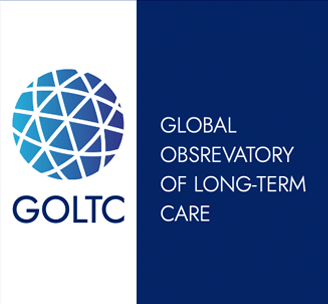Nicola Brimblecombe
Care Policy and Evaluation Centre, London School of Economics and Political Science
Nicola Brimblecombe

I am a mixed methods researcher whose research focuses on unpaid/informal carers including young carers and support for carers, housing and care, unmet need and inequalities in care, and the wider determinants of care need and care use. I joined the London School of Economics and Political Science in 2012 and am currently leading a study on young carers, whole family approaches, integrated support for carers, and housing and care. Previous projects include a study of unmet need and unpaid carers and two interlinked studies on unpaid care and employment. Other work includes an economic evaluation of youth mental health services and a study on the long-term economic impacts of bullying in childhood.
FURTHER INFORMATION
| Countries | UK; |
|---|---|
| Topics | Access to care; Care inequalities; Care trajectories; Employment education and family carers; Gender and care; Housing and care; LTC Policy; Unmet needs; Unpaid / informal care; Younger carers; |
| Methods | Co-production methods; Mixed methods; Qualitative studies; Quantitative data analysis; Questionnaire; Surveys; Theory and frameworks; |
| Role | Research; |
| Interest Groups | Employment Education and Family carers; |
| ORC.ID | 0000-0002-6147-5726 |
| GOOGLE SCHOLAR | https://scholar.google.com/citations?user=fsfq2dgAAAAJ&hl=en |
| https://twitter.com/Nicbrimblecombe | |
| Research interests | Unpaid/informal carers Improving support for the diversity of carers Young and young adult carers Housing, place and care Unmet need and inequalities in care Wider determinants of care need and care use; the care context Research into practice |
| Key publications | Brimblecombe, N., & Cartagena Farias, J. (2022). Inequalities in unpaid carer’s health, employment status and social isolation, Health & Social Care in the Community, 00, 1– 13. https://doi.org/10.1111/hsc.14104 Brimblecombe, N. (2022). Inequalities in receipt of long-term care services by disabled or older people and co-resident carer dyads in England, Journal of Poverty and Social Justice. https://doi.org/10.1332/175982721X16605972092524 Brimblecombe (2022). The consequences for unpaid carers of unmet need for long-term care services in England. International Journal of Care and Caring. https://doi.org/10.1332/239788222X16546112844546 Cartagena Farias, J., Brimblecombe, N., & Hu, B. (2023) Early onset of care needs in the older population: The protective role of housing conditions, Health & Place, 81, https://doi.org/10.1016/j.healthplace.2023.103007 Brimblecombe, N and Burchardt, T (2021) Social care inequalities in England: evidence briefing, CASE, LSE https://sticerd.lse.ac.uk/CASE/_NEW/PUBLICATIONS/abstract/?index=8524 Brimblecombe, N., Knapp, M., King, D., Stevens, M. & Cartagena Farias, J. (2020) The high cost of unpaid care by young people: health and economic impacts of providing unpaid care. BMC Public Health. 20, 1115. doi:10.1186/s12889-020-09166-7 Brimblecombe, N., Stevens, M., King, D. & Knapp, M. (2020) The role of formal care services in supporting young people who provide unpaid care in England. Journal of Youth Studies. doi:10.1080/13676261.2020.1828848 Brimblecombe, N., Fernandez, JL, Knapp, M., Rehill, A. & Wittenberg, R. (2018) ‘Review of the international evidence on support for unpaid carers’, Journal of Long-Term Care, September, 25-40. doi:10.21953/lse.ffq4txr2nf Brimblecombe, N., Pickard, L., King, D. & Knapp, M. (2017) ‘Barriers to receipt of social care services for working carers and the people they care for in times of austerity’. Journal of Social Policy, 47(2), 215-233. doi:10.1017/S0047279417000277 Pickard, L., Brimblecombe, N., King, D. & Knapp, M. (2018) ‘‘Replacement Care’ for Working Carers? A Longitudinal Study in England, 2013–15’. Social Policy & Administration, 52, 690–709. doi:10.1111/spol.12345 Brimblecombe, N., Pickard, L., King, D. & Knapp, M. (2016) ‘Perceptions of unmet needs for services in England: A comparison of working carers and the people they care for’. Health and Social Care in the Community. doi: 10.1111/hsc.12323
|

